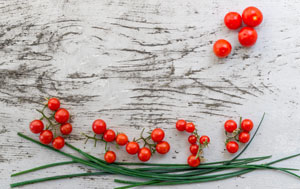How can we put olive, tomato, citrus fruit and rapeseed meal residue to good use? Our Application & Technical Service Centre in Mold, North Wales, UK, is on a three-year journey with Bangor University collaborating on a project to make practical use of leftover food waste.
In 2018 we joined the Pro-Enrich project, a European collaboration between 13 companies and three research organisations, aiming to develop an efficient, cost-effective way of processing agricultural residues into alternative proteins and other ingredients. And not just food – these plant-based proteins also have potential for use in pet food and cosmetics products too!
Historically the food ingredients sector has utilised products derived from animal protein in order to thicken, stabilise or add texture to food products, but we know that markets are shifting in the direction of environmental sustainability.
As more consumers worldwide become interested in non-meat and non-dairy options as part of a flexitarian or outright vegan diet, looking at sustainable alternatives makes sense. And as the majority of our ingredients are derived from plant sources, we’re in a great position to be involved in the research and identification of cost-effective alternatives to animal-derived food ingredients.
Our plant in Mold specialises in stabilisers and functional systems. We bring a wealth of practical knowledge to the table, as we often work with customers to tailor specific solutions to their formulation issues using our full portfolio of functional ingredients, including fibres and texturants. For Pro-Enrich, we’re looking into different ways of using plant proteins in gels, foams and emulsion stabilisers that can be found in food products like soups, sauces and dressings and a wide range of bakery and dairy products.
For more information about the Pro-Enrich project, click here.
Our work with Pro-Enrich aligns with us achieving our goal of making our Mold plant a zero-to-landfill site, in line with our purpose Improving Lives for Generations by, among other things, caring for our planet.



